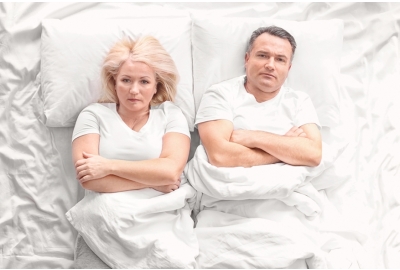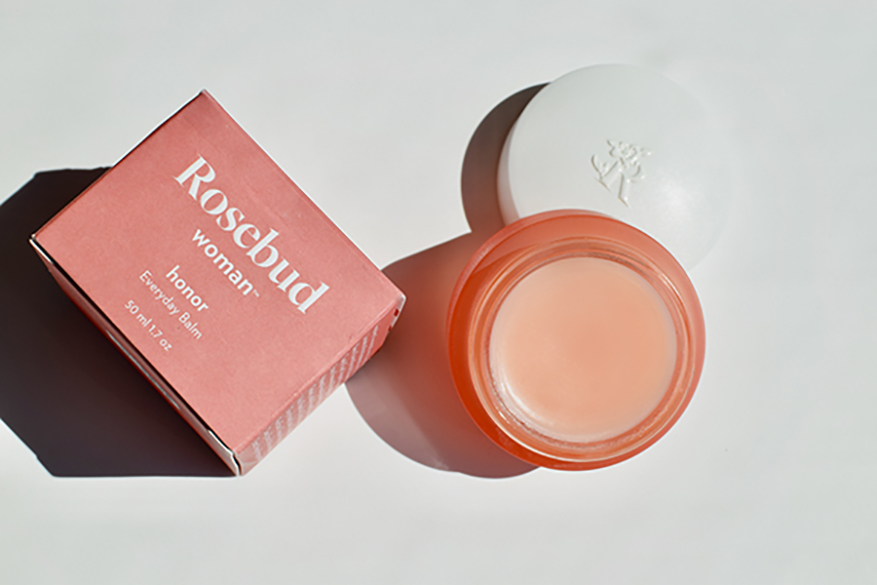
Menopause and Your Libido: Everything You Need to Know
One of the most irritating side effects of menopause — and one of the most common — is a decreased libido. Many women find themselves navigating a lower sex drive in addition to their other symtpoms, which can impact the relationship they have with their partner and with themselves. Here’s what you need to know about menopause and your libido and getting menopause relief for your sex drive.

By Africa Studio / Shutterstock.com
Why Menopause Causes a Loss of Libido
Menopause causes fluctuations in hormones that both directly and indirectly contribute to sexual desire. First of all, testosterone declines about 50 percent between the ages of 25 and 40 years. Testosterone is one of the main hormones that contributes to libido, so declining testoterone levels can lower your sex drive.
Menopause can also result in physical bodily changes that can make sex more uncomfortable and less pleasurable and thus lead to reduced libido. Lower levels of estrogen can cause the walls of the vaginal canal to thin and/or become dry, which can make penetrative sex uncomfortable and even painful. These sensations are sometimes enough to discourage women from having sex altogether.
Menopause and Vaginal Dryness: Understanding the Connection
Stress can also impact your libido, and menopause can contribute to that pressure. Most women go through menopause at a relatively demanding time in their life. They may be caring for growing children or they are aging – or both – which puts a lot of responsibility on them. If you work, you are also likely to reach the peak of your career around the same age that you begin menopause. Menopause itself is also a very stressful experience and leads to physical and emotional changes that you have to learn to cope with. All of these factors often combine to lower your libido during menopause.
How to Treat Menopausal Loss of Libido
You can try multiple approaches to help boost your libido and make sex more pleasurable during menopause. For sex specifically, using a vaginal lubricant generously can ease dryness and help relieve discomfort. Experiment around to find one that you and your partner enjoy using, and don’t be shy about the amount. Be sure to only use dedicated vaginal lubricants and to avoid “home remedies” such as coconut oil. These can irritate your pelvic area and actually make you want to have sex less. Stick with tried-and-true vaginal lubricants that are meant to go down there. (Learn more about peeing during sex and why it can happen during menopause.)
Shop All Intimate Self Care Products
Communicating with your partner is also key to keeping sexual intimacy alive in your relationship. In fact, during an interview with women from our community, they said one of the most important parts of keeping intimacy alive as you age is open communication. Your body changes during menopause, which means that your sexual and physical needs are changing, too. Open communication with your partner is key for establishing a new dynamic and exploring new territory together. If you have trouble communicating, then going to therapy alone or with your partner can help with it.

By Image Point Fr / Shutterstock.com
Your doctor might also prescribe hormone replacement therapy (HRT), giving you doses of either estrogen or testosterone or both. These different treatments do have potential side effects but help women struggling with severe hormonal changes brought on by the onset of menopause. If most of your symptoms are vaginal, your doctor might also prescribe an estrogen cream or vaginal cream to specifically target that area.
Exercise stimulates the release of feel-good hormones such as dopamine that can boost your mood and help reduce stress. If you want to specifically build your pelvic area, then your doctor may recommend pelvic floor exercises with or without Kegel balls to help target those muscles and tighten your vaginal area. This can help make sex more pleasurable and also increase your stamina.
Managing your stress can also go a long way towards improving your sex drive, whether or not you are going through menopause. Finding ways to de-stress and also remove unnecessary stressors from your life will make you feel better in more ways than one.
Reduced libido is often a normal side effect of menopause, but it doesn’t have to run your life. By working in concert with your doctor and your partner, you can still have a fulfilling sex life even as your manage your menopause symptoms. At Sofia & Grace, we sell many products that can help with menopause relief, from intimate care to bladder leakage liners. All of our products ship straight to your door in discreet packaging. Shop Sofia & Grace today and start taking control of your menopause journey.
Shop All Menopause Relief Products Here
